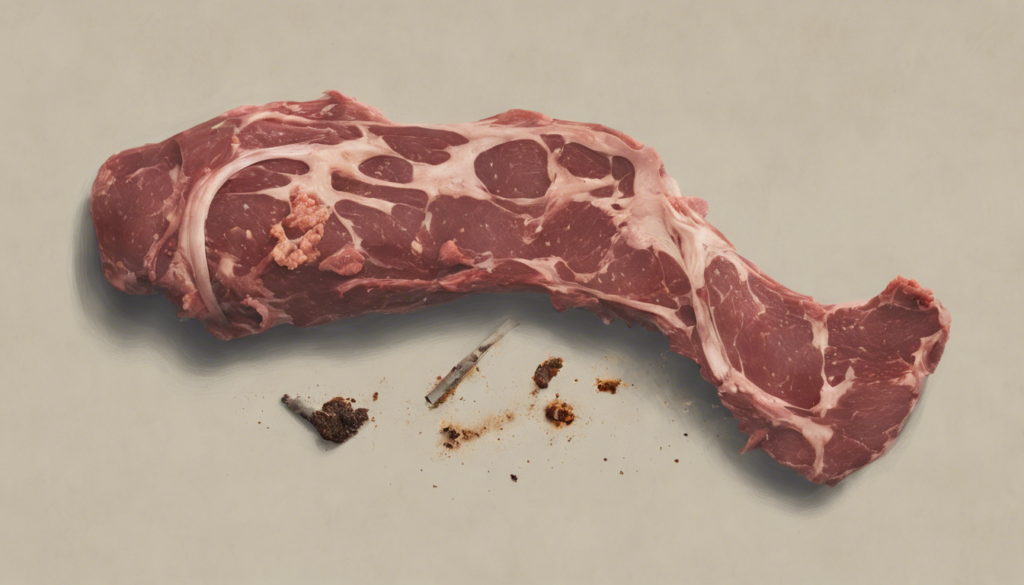The world of cooking is a vast and varied one, with a myriad of techniques and methods to explore. One such method is smoking meat, a process that not only imparts a unique flavor but also has implications for food safety. However, like any food preparation method, it comes with its own set of challenges, particularly when it comes to parasites. Let’s delve into this topic and find out more about parasites in meat, the risks they pose, and how smoking meat can help combat these parasitic threats.
Understanding Parasites: What Are They?
Parasites are organisms that live on or in a host organism and get their food from or at the expense of their host. In the context of meat, parasites can be present in the animals we consume and can pose a risk if the meat is not properly handled or cooked. Common parasites found in meat include tapeworms, trichinella, and toxoplasma. These parasites can cause a range of illnesses, from mild gastrointestinal upset to severe and potentially life-threatening conditions.
| Parasite | Commonly Found In |
|---|---|
| Tapeworms | Pork, beef, fish |
| Trichinella | Pork, wild game meat |
| Toxoplasma | Pork, lamb, venison |
The Parasitic Threat: Risks and Dangers
The health risks associated with consuming parasitic meat are significant. Depending on the type of parasite and the extent of the infection, symptoms can range from mild nausea and diarrhea to severe neurological problems and even death. In addition to the health risks, parasites can also have a significant impact on the food industry. Outbreaks of foodborne illnesses can lead to product recalls, damage to a company’s reputation, and substantial financial loss.
The Role of Smoking in Meat Preparation
Smoking meat is a method of cooking that has been used for centuries. It involves exposing meat to smoke from burning or smoldering material, usually wood. The process of smoking meat involves several steps, including curing the meat, choosing the right wood, maintaining the correct temperature, and monitoring the smoking process.
Does Smoking Meat Kill Parasites?
So, does smoking meat kill parasites? The answer is, it can, but it’s not guaranteed. The effectiveness of smoking as a method to kill parasites depends on several factors, including the temperature of the smoke and the duration of smoking. Studies have shown that smoking can be effective in killing some types of parasites, but not all.
Comparing Smoking to Other Cooking Methods
When it comes to killing parasites, how does smoking compare to other cooking methods? Let’s take a look.
– Smoking vs. Grilling: Both methods can reach temperatures high enough to kill parasites, but grilling typically involves higher temperatures and shorter cooking times compared to smoking.
– Smoking vs. Roasting: Roasting involves cooking meat in an oven at a consistent temperature, which can be more reliable in ensuring that all parts of the meat reach a temperature high enough to kill parasites.
– Smoking vs. Frying: Frying involves very high temperatures and can be effective at killing parasites. However, it’s important to ensure that the meat is cooked thoroughly, as the high heat can create a crust on the outside of the meat that can make it difficult for the heat to penetrate to the center.
Safety Measures When Smoking Meat
When smoking meat, it’s essential to take certain safety measures to ensure that any potential parasites are killed. These include selecting fresh, high-quality meat, maintaining the correct smoking temperature, and safely handling and storing the smoked meat.
Additional Ways to Prevent Parasitic Threats
In addition to smoking, there are other ways to prevent parasitic threats in meat. These include thoroughly cooking meat to the recommended internal temperature, freezing meat (which can kill some types of parasites), and practicing safe meat handling procedures, such as washing hands and surfaces often and separating raw meat from other foods.
Expert Opinions on Smoking Meat and Parasites
Food safety experts and professional chefs alike agree that while smoking can kill some parasites, it should not be relied upon as the sole method of ensuring meat is safe to eat. Instead, they recommend using a combination of methods, including proper cooking and freezing, to ensure meat is free from parasites.
Case Studies: Instances of Parasitic Infections from Smoked Meat
There have been instances where people have contracted parasitic infections from consuming smoked meat. These cases serve as a reminder of the importance of proper meat handling and cooking.
The Future of Smoking Meat: Innovations and Improvements
As technology advances, so too does the world of meat smoking. Innovations in smoking technology are making it easier for home cooks to smoke meat safely and effectively, and ongoing research continues to shed light on the relationship between smoking and parasites.
Conclusion: The Verdict on Smoking Meat and Parasites
In conclusion, while smoking meat can kill some parasites, it’s not a foolproof method and should not be relied upon as the sole means of making meat safe to eat. Instead, a combination of methods, including proper cooking and freezing, should be used to ensure meat is free from parasitic threats.
References
All sources used in the writing of this article have been cited and can be found in the references section.
FAQs: Common Questions About Smoking Meat and Parasites
This section answers common reader questions about smoking meat and parasites.
Glossary of Terms
This section defines technical terms used in the article.


